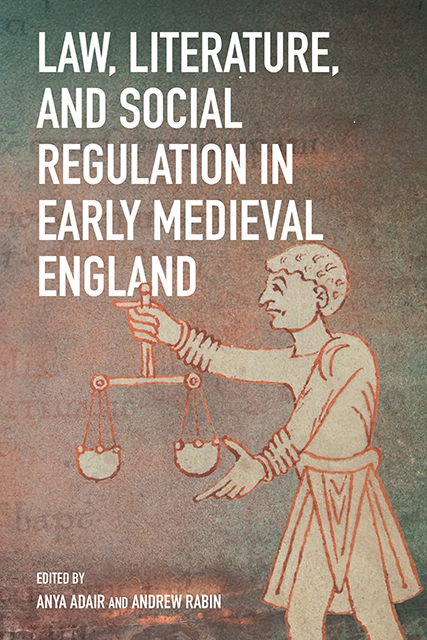11 - The Terms of Hypocrisy in Early English Law and Literature: Ælfric and Wulfstan
Published online by Cambridge University Press: 10 June 2023
Summary
Scholars who periodize hypocrisy tend to associate it with early modern Europe; however, by examining homiletic, legal, and hagiographic rep-resentations of hypocrisy across the early English corpus, this chapter will explore how discourses on the vice underpin their authors’ visions of moral and legal behavior in public life. The nature of hypocrisy as both a moral and political ill make it a useful vehicle for covering this legal and spiritual terrain. As a social disruption, the vice forces creative reflections on the ramifications of a society's legal breaches at the essential levels of trust and truth. As the authors examined here present it, moreover, hypocrisy reveals the institutional interplay of the early English literary, legal, and homiletic traditions. Texts from each genre concern themselves (each with respect to their particular sphere of interest) with individuals’ failure to consistently align their thoughts, intentions, and actions; what emerges is a vision of the world in which the integrity of the laity depends on that of the Church, and in which both seek to establish order and achieve resolution through legal prescriptions. I leave open the extent to which the exhortations and examples found in these textual traditions translated into actual social practice, even in the case of written law. Although pre-Conquest legislators from Alfred onward prescribed how local people should behave, sheriffs, reeves, and other authorities would not necessarily have enforced these prescriptions consistently or efficiently. And one imagines that the vaguely-phrased moral crimes of the later law codes would have posed considerably greater problems for practical detection and enforcement than the usual run of local crimes.
To tease out the practicability of legislating a moral idea, I turn to two ecclesiastics whose rhetorically-rich spiritual writings envisioned a society standing on divinely-sanctioned legal ground: Ælfric (d. c. 1010) and Wulfstan (d. 1023). My focus on these figures is not intended to delineate the peculiarities of their several approaches to the moral issue here examined; rather, my interest lies more broadly in the textual channels of the tenth and eleventh centuries. The eclectic flow of sermons, sacred histories, and saints’ lives to which these men were significant and influential contributors mixed legal, spiritual, and poetic languages, and addressed a range of audiences, from royal patrons, to church masters and students, to lay audiences. On the whole, then, I present their writings as similarly sourced if contextually discrete manifestations of church concerns at the turn of the eleventh century.
- Type
- Chapter
- Information
- Law, Literature, and Social Regulation in Early Medieval England , pp. 236 - 258Publisher: Boydell & BrewerPrint publication year: 2023



